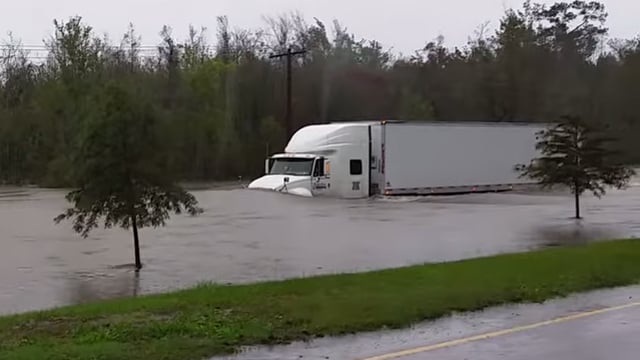REDWOOD LOGIN
Redwood PortalLTL
SCS
SCS Support
Rockfarm
 This year’s hurricane season is hitting the entire country with an unprecedented force, and there has been a drastic impact on the trucking industry in response. From flooded and damaged roads to destroyed warehouses, Harvey and Irma have devastated two major transportation areas back to back. And sorting out the aftereffects for the transportation and warehousing industries has proved problematic.
This year’s hurricane season is hitting the entire country with an unprecedented force, and there has been a drastic impact on the trucking industry in response. From flooded and damaged roads to destroyed warehouses, Harvey and Irma have devastated two major transportation areas back to back. And sorting out the aftereffects for the transportation and warehousing industries has proved problematic.
FTR Transportation Intelligence found that Hurricane Harvey alone affected nearly 10% of the entire U.S. trucking industry. Even a month later, Harvey still is affecting 2% of the total trucking industry and 25% of the regional level. Though most of the lingering effects are regional, today’s “regional” means widespread catastrophe in a global economy.
What have been the effects of these hurricanes and what can we expect moving forward?
There are fewer trucks on the road after a hurricane. When floods damaged infrastructure, trucks sat idle waiting for roads and loading docks to clear. This “locked” trucks in their hubs, unable to get a number of trailers out on the roads for shipments.
The number of total freight loads fell by 10% nationally and 72% out of Houston directly after Harvey. Houston, which the storm devastated, is not only the fourth largest city in the U.S.; it’s a prominent freight hub, especially for vans and reefers. Most Mexican and Central American goods filter through Houston for distribution nationwide, and it’s one of the greatest transportation hubs in America with one of the highest trucking employment rates.
A large number of trucks were needed to transport shipments of emergency relief, debris, and construction products. Even now, a month later, a majority of the shipments in and out of Houston are related to rebuilding post-Harvey.
This meant pulling the few number of available trucks out of their usual circulation to meet relief efforts. This has created new supply chain demands that further puts a strain on the trucking industry.
Furthermore, warehouses and fulfillment centers have been out of commission due to damage and flood. That means that other centers are quickly filling up with goods, causing a lack of space, facilities, and capacity.
Congestion in hubs, loading, and roads have caused major delays. Everything is bottlenecked and backed up by weeks, and it will likely take months to overcome this stoppage.
Altogether, this generates the archetypal relationship of supply and demand. Where there is low supply and high demand, prices skyrocket.
According to DAT Solutions, spot rates have jumped nearly 6 percentage points. This is going to have a drastic impact on both transportation businesses trying to survive and their clients who need low shipping costs to maintain healthy margins.
Price increases are not uncommon following a major “weather event.” After Hurricane Katrina, FTR started looking at the relationship of weather and the trucking industry. Following Katrina, there was a 7-percentage point increase for five months. With Harvey having equally devastating effects on a major trucking port, this does not bode well for the upcoming months.
There are also unique concerns to both Harvey and Irma. Texas provides 30% of the U.S. petroleum refinery capacity. Hurricane Harvey destroyed some of the major petroleum production bases. According to S&P Global Platts, 14 refineries have had to shut down, while others are working at reduced rates. This has diminished capacity by nearly 19 million barrels and counting, equating to one-fifth of the country’s total oil refining volume.
CNN reported that gas prices have spiked nationwide by 15% since Harvey, and they are expected to continue to rise in the upcoming months. This affects every citizen and the energy of our economy, but it has an especially drastic impact on the trucking industry that relies on low gas prices to maintain the bottom line.
Additionally, Hurricane Irma killed off all crops that had been planted in southwest Florida for the upcoming harvest season. This will put farmers back at least 125 days before the next available crop. Irma’s impact will put a significant, countrywide strain on food resources coming out of Florida and the surrounding Gulf Coast area.
There has been immediate and lasting disruption of the trucking industry with regards to changes in supply, demand, cost, and overall flow patterns. It’s going to take a period of time and reorganization to recover from the backup associated with such severe weather effects.
We at LTX are praying for all those affected by this hurricane season. We hope you are quickly met with relief and rebuilding.